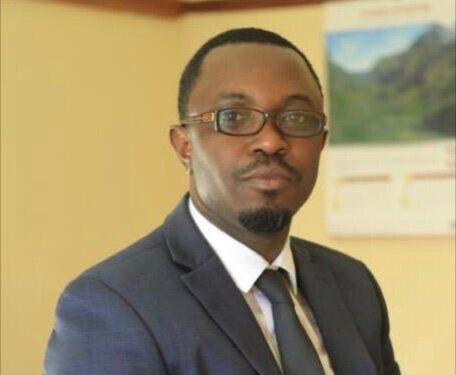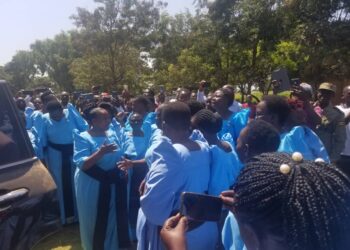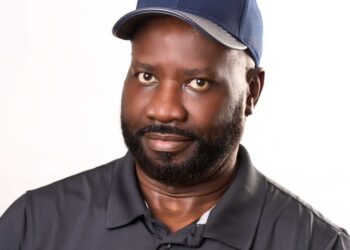Available data indicates that by October 1, more than 50 countries had missed the World Health Organization’s (WHO) set global target of fully vaccinating at least 10 per cent of their populations against Covid-19 by the end of September.
While almost 90 per cent of high income-countries have met this target, in Africa, the WHO’s overall figure for those fully vaccinated is currently at a paltry 4 per cent (About 60 million people), with only 15 countries having met the target.
Yes, I get it! The African continent has suffered immensely from vaccine shortages, made worse by health infrastructure challenges and shortfalls in supplies from the global vaccine-sharing initiative, COVAX. However, we need to be more honest and appreciate that the problem is not only on the “supply side” but on the “demand side” of things as well.
Whereas millions of Covid-19 vaccine doses have made their way to Africa in recent months, experts and public health officials are facing serious challenges in rolling out these doses to the masses in a timely manner before their expiry. Already, over 450,000 doses of the vaccines distributed to African nations had expired by early August.
In my view, the problem largely emanates from the broken communication system that currently exists between the experts (scientists, public health officials, political leaders, etc.) and the ordinary people. The system lacks a combination of empathy and expertise, and has left many key questions about the vaccine(s) un-answered.
It was Peter Drucker who once said: “The most important thing in communication is to hear what is not being said” But the irony with this assertion is that, when communications are made, but with what appears to be half-truths, questionable honesty or with fewer facts, a lot of room is left for misinformation, distrust and open-ended debates.
How was a Covid-19 vaccine found so quickly?
The breakneck speed at which the Covid-19 vaccine has been developed remains one of the major mysteries surrounding Covid-19. Previously, the mumps vaccine, developed in 1967, was the quickest to have ever been developed – it took 4 years.
Vaccine development is usually a long, complex process, often taking 10-15 years and involving a combination of public and private involvement. Experts normally spend many years of rigorous testing for safety and effectiveness before approval of a vaccine.
Therefore, it is only natural for people to have anxiety over the safety and effectiveness of a vaccine that took less than twelve months to develop. There are genuine concerns that the Covid-19 vaccine was rushed and that thorough clinical trials were not done. And with these concerns, comes vaccine hesitancy.
Perhaps the speed of this unprecedented achievement could be due to medical advancements, global collaboration and political will. But efforts should be made by the experts to candidly answer the frequently asked questions, especially those relating to the vaccine development or testing process.
Why isolate the un-vaccinated?
Today, almost all countries around the world have instituted some forms of restrictions premised on Covid-19 vaccination. From the mandatory vaccination of teachers in countries such as Uganda and China, to the denial of un-vaccinated people entry to sports events in the United States, Covid-19 is undeniably breaking society apart.
Different aspects of daily life are becoming increasingly complicated for anyone un-vaccinated against Covid-19. Socializing, work, air travel and engaging in leisure activities are all increasingly being determined by one’s Covid-19 vaccination status.
Some people have indicated that being Covid-19 survivors, they developed natural immunity to the disease and do not need a vaccine. Others have questioned why they have to take the jab when Covid-19 can be a mild or asymptomatic illness for many people, especially the young. And for the majority, they simply just want to take their time.
Of course, some of these views could be wrong or misguided but it is the role of governments and experts to listen in, conduct the necessary research and give expert feedback. This would help in debunking misinformation and building public trust.
Lessons from the Ebola Response in West Africa
The 2014 – 2016 Ebola outbreak in the West African countries of Guinea, Liberia, and Sierra Leone that claimed more than 11,000 lives offers many lessons.
In his book, The Pandemic Century, author Mark Honigsbaum paints a bleak picture of what transpired, especially in the early months of the epidemic: “One of the most common rumours across the entire West African Ebola zone was that the virus was manufactured in a U.S military facility or that it was a plot by governments to attract foreign aid to the region”.
The rumours sparked violent clashes with communities suspicious of the intentions of foreigners, medical experts and government officials. The most unfortunate incident of all occurred when a delegation of medical personnel and government officials was set upon by an angry mob. Eight members of the delegation were captured, killed and their bodies dumped in a latrine.
According to many observers, social mobilization and massive communication campaigns were crucial ingredients in winning the battle against Ebola. Gaining the understanding and support of Guinean, Liberian and Sierra Leonean villagers required the intervention of experts, local community leaders, as well as active participation from top political leaders.
How Science usually works
According to Fareed Zakaria: “The reality is that Science does not yield one simple answer, especially not with a new phenomenon like Covid-19. We tend to think of science as providing a single, definitive answer, but that isn’t really how it works. Science is, above all, a method of inquiry, a process of posing questions and rigorously testing different hypotheses”.
Scientific data analysis is crucial, but so is social analysis and often times, both require a process of open debates and attempts at eliminating falsifications. The fundamental reason why many people have refused to heed expert advice regarding Covid-19 vaccination may have little to do with the complexity of science or ignorance. Many of these people distrust the experts, no matter how highly credentialed they are.
Georges Clemenceau once remarked, “War is too important to be left to the generals”. In that spirit, one could say that the Covid-19 vaccination program is too important to be left to the scientists or experts. The experts are essential, but so are the ordinary people and their views!
Mr. Mukalazi is the Country Director of
Every Child Ministries Uganda.
Do you have a story in your community or an opinion to share with us: Email us at editorial@watchdoguganda.com













